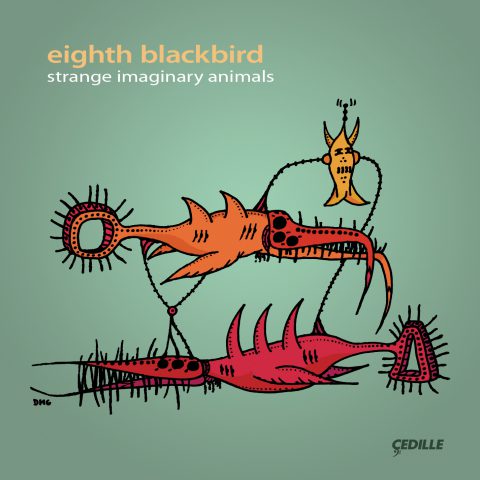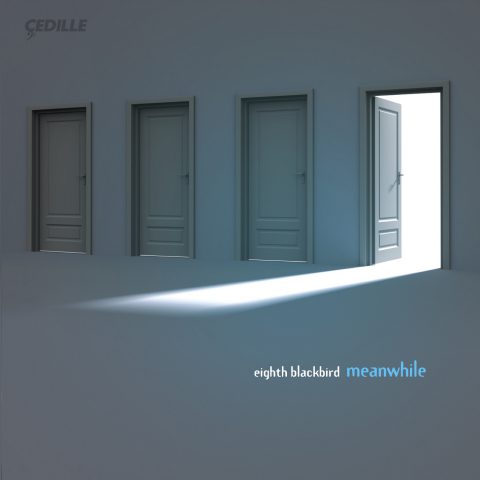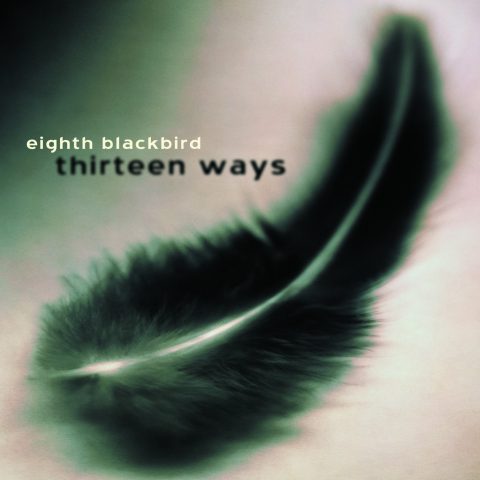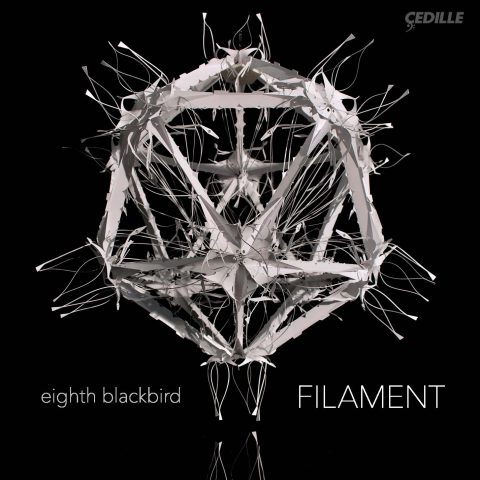| Subtotal | $18.00 |
|---|---|
| Tax | $1.85 |
| Total | $19.85 |
Store
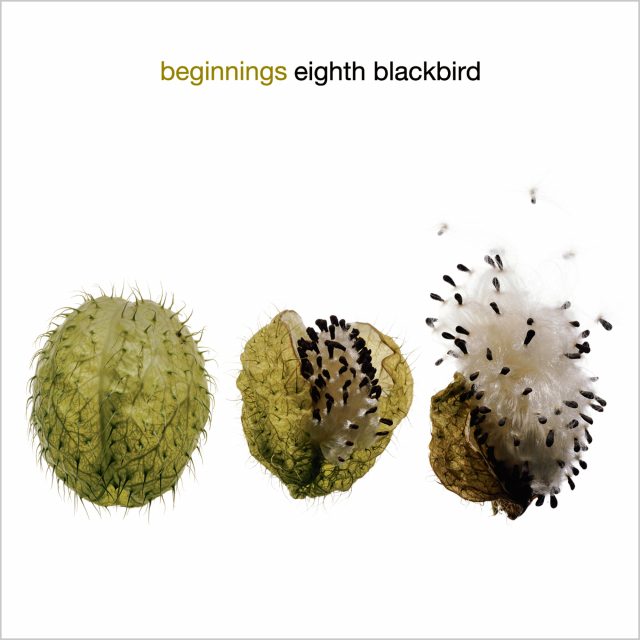
Store
eighth blackbird: beginnings
How did the world begin? How did life come about? Religion has given us vivid poetic descriptions of the creation, and it has inspired literature attributing the creating force to God, a god, or an unending cycle that has no beginning and no end. Science has given us the Big Bang, with its single point of super-condensed proto-matter exploding to create innumerable celestial bodies, and Darwin, who explained how man evolved from the failed species that came before us. No matter what we believe, we are fascinated by our beginnings, and we are continually striving for explanations that satisfy our desire to know ourselves better. Whether coming from Daniel Kellogg’s Christian beliefs or George Crumb’s fascination with the timelessness of nature, both pieces on this disc share an incredible commonality of musical responses to these questions. Both pieces explore the inherent violence of creation, whether in short outbursts, as in the opening of the Kellogg, or in the jagged, piercing melody heard at the beginning of the Crumb. Both pieces move from this violence to joyful celebrations and tender contemplations, using the full dynamic range and color palette at each composer’s disposal. Both pieces offer long, expansive lines and melodies, defying and stretching time in an attempt to prolong the emotions contained within the composers’ musical outpouring.
For us, playing and interpreting these works, their clearest common bond is the breadth of human experience they suggest. Though Kellogg and Crumb are inspired by different backgrounds and beliefs, these two pieces bring out the same incredibly wide range of emotions, reminding us that it is the totality of a person’s experiences that, taken altogether, make a life. Whether leading to the boisterously jubilant ending of the Kellogg or the quietly exultant last strain of the Crumb, both pieces celebrate the fact that we live, that the universe does exist, that out of the obscure chaos, a harmonious peace has been achieved.
We do not know how the world began, but we do know that these pieces tell that story much better than we ever could.
Preview Excerpts
DANIEL KELLOGG (b. 1976)
Divinum Mysterium
Vox Balaenae (Voice of the Whale) For Three Masked Players
Variations on Sea-Time
Artists
1: with Chanticleer
Program Notes
Download Album Bookletbeginnings
Notes by eighth blackbird
Daniel Kellogg Divinum Mysterium (2000)
In the beginning was the Word, and the Word was with God, and the Word was God. He was in the beginning with God. All things were made through him, and without him was not anything made that was made. In him was life, and the life was the light of men. The light shines in the darkness, and the darkness has not overcome it. —John 1:1–5 (ESV)
The opening verses of John’s Gospel and the several that follow are among my favorite passages of scripture. John writes that not only was the world created through Christ, but Christ is also the light that will overcome the darkness by restoring the creation. This was the plan from before there was existence: it is circular, beautiful, and offers complete hope. We humans are not in fact a cosmic accident but are the result of the greatest work of art (the creation), by the greatest artist (Christ). We are not alone, but in fact are loved.
This piece is a personal response to the overwhelming beauty of the creation and the magnificent forces that were involved in its beginnings. I am moved to capture glimpses of this story in music. I wanted to dwell on God’s terrifying presence and power, His Light that is all glorious, His compassion and love, and the response of rejoicing.
Divinum Mysterium is the name of a text by Prudentius that was translated and set as a hymn called “Of the Father’s Love Begotten.” Singing this hymn each Advent season in our family’s church is one of the most beautiful and striking experiences in my musical memory. It was unlike any other musical experience I knew: we sang it in unison and without accompaniment except for tonic bell tones between the phrases. I felt connected to the people of ancient times who used it to express their praise, and yet it felt vibrant and contemporary. It remains my favorite hymn.
When I set out to write a piece about the creation this melody came to mind as the perfect vehicle to represent my Christian understanding of the creation. This melody is sung at the beginning of the piece, played by piano and cello at the end, and woven throughout each movement. Evermore and evermore. — Daniel Kellogg
Corde natus ex parentis Ante mundi exordium Alpha et cognominatus, Ipse fons et clausula Omnium quae sunt fuerunt, Quaeque post futura sunt, Saeculorum saeculis.
Of the Father’s love begotten, Ere the worlds began to be, He is Alpha and Omega, He the source, the ending he, Of the things that are, that have been, And that future years shall see, Evermore and evermore!
George Crumb Vox Balaenae (Voice of the Whale) (1971)
Vox Balaenae was inspired by the singing of the humpback whale, a tape recording of which I had heard two or three years previously. Each of the three performers is required to wear a black half-mask (or visor-mask). The masks, by effacing the sense of human projection, are intended to represent, symbolically, the powerful impersonal forces of nature (i.e. nature dehumanized). It’s an abstract piece of nature-music, in that I let the sounds of the instruments suggest the quality of the whale song. I wrote an evocation of nature, using artistic license, like Beethoven in his Sixth Symphony. When people hear the summer storm, they don’t go rushing for their umbrellas….
Reading about the Big Bang inspired the violence of the opening Vocalise (marked in the score “wildly fantastic, grotesque”). I included a parody of Strauss’s Also Sprach Zarathustra because there’s something kind of primeval in the Nietzsche itself — it suggests going way back in time, and the language is almost biblical in its nature. The variations are named after geological eras to symbolize infinite antiquity, a time immeasurably in the past. In the concluding Sea-Nocturne (“serene, pure, transfigured”), I wanted to suggest “a larger rhythm of nature” and a sense of suspension in time. The concluding gesture of the work is a gradually dying series of repetitions, suggesting a diminuendo beyond the threshold of hearing. — George Crumb
Album Details
Total Time: 56:20
Producer & Engineer: Judith Sherman
Assistant Engineer: Hsi-Ling Chang
Editing: Bill Maylone
Graphic Design: Melanie Germond & Pete Goldlust
Front cover photo: © Bill Steele / Stone
Photo of eighth blackbird: McArthur Photography
Recorded: July 16-21, 2002 at the Recital Hall of the Performing Arts Center at SUNY, Purchase, NY
Publishers: Kellogg © 2000 Daniel Kellogg / Crumb © 1972 C.F. Peters Corporation
Chanticleer appears courtesy of Warner Classics International. Chanticleer recording credits are:
- Producer: Steve Barnett
- Engineer: Preston Smith
© 2004 Cedille Records/Cedille Chicago
CDR 90000 076
